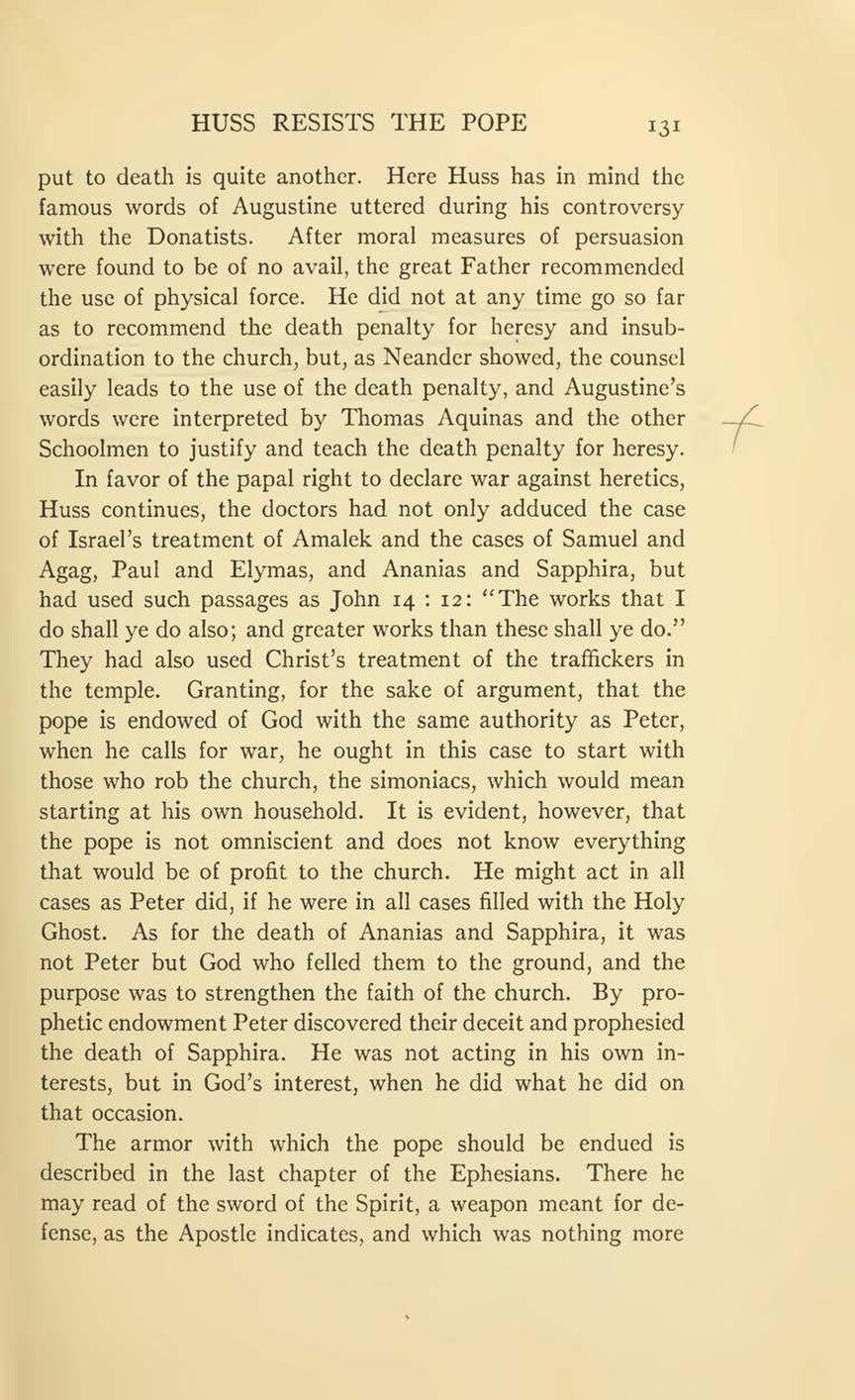put to death is quite another. Here Huss has in mind the famous words of Augustine uttered during his controversy with the Donatists. After moral measures of persuasion were found to be of no avail, the great Father recommended the use of physical force. He did not at any time go so far as to recommend the death penalty for heresy and insubordination to the church, but, as Neander showed, the counsel easily leads to the use of the death penalty, and Augustine’s words were interpreted by Thomas Aquinas and the other Schoolmen to justify and teach the death penalty for heresy.
In favor of the papal right to declare war against heretics, Huss continues, the doctors had not only adduced the case of Israel’s treatment of Amalek and the cases of Samuel and Agag, Paul and Elymas, and Ananias and Sapphira, but had used such passages as John 14: 12: “The works that I do shall ye do also; and greater works than these shall ye do.” They had also used Christ’s treatment of the traffickers in the temple. Granting, for the sake of argument, that the pope is endowed of God with the same authority as Peter, when he calls for war, he ought in this case to start with those who rob the church, the simoniacs, which would mean starting at his own household. It is evident, however, that the pope is not omniscient and does not know everything that would be of profit to the church. He might act in all cases as Peter did, if he were in all cases filled with the Holy Ghost. As for the death of Ananias and Sapphira, it was not Peter but God who felled them to the ground, and the purpose was to strengthen the faith of the church. By prophetic endowment Peter discovered their deceit and prophesied the death of Sapphira. He was not acting in his own interests, but in God’s interest, when he did what he did on that occasion.
The armor with which the pope should be endued is described in the last chapter of the Ephesians. There he may read of the sword of the Spirit, a weapon meant for defense, as the Apostle indicates, and which was nothing more
